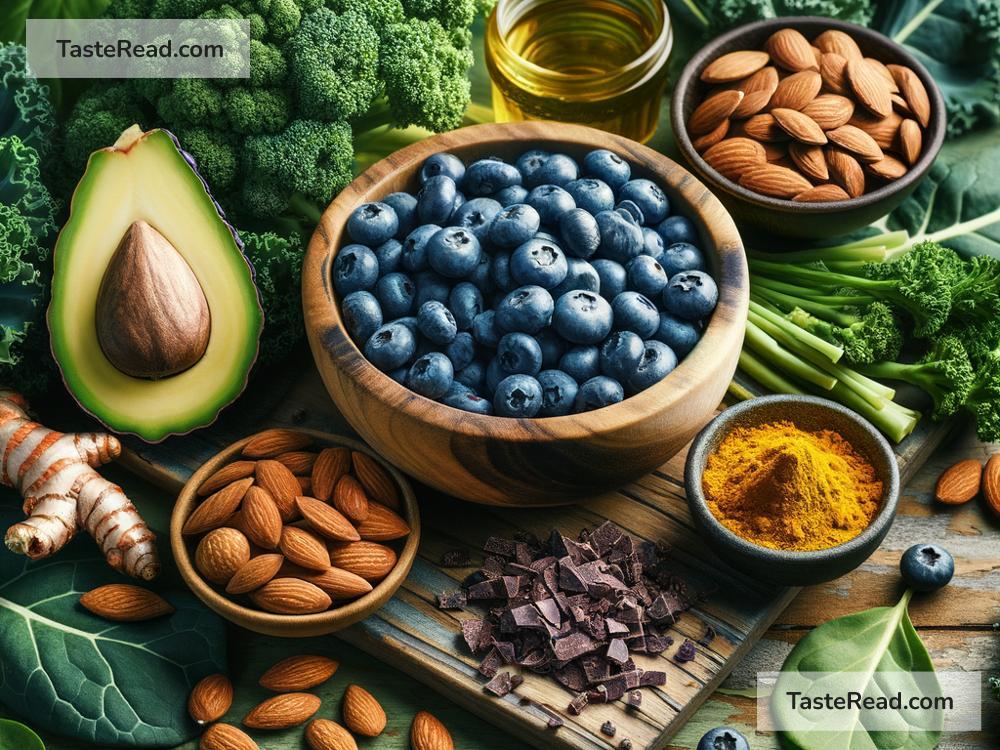Unlocking Your DNA: Foods That Help Improve Epigenetic Regulation
Did you know that the food you eat can influence how your genes behave? No, this doesn’t mean you’ll grow wings or superpowers from your diet—but certain foods can promote better epigenetic regulation, helping your body function more smoothly. In simple terms, epigenetics refers to the “on and off switches” of your genes. While your DNA determines how traits and functions are passed down from your parents, epigenetics controls how your genes are expressed. It’s as if epigenetics decides which pages of your DNA “recipe book” get read.
The exciting part? What you eat influences epigenetic regulation! By choosing the right foods, you might improve the way your body manages inflammation, repairs itself, and even lowers your risk of certain diseases. Here are some amazing foods that could help you support your epigenetics.
1. Leafy Greens: Spinach, Kale, and Broccoli
Dark, leafy greens like spinach, kale, and broccoli are rich in folate (vitamin B9). Folate plays a big role in DNA methylation, one of the key processes of epigenetic regulation. Methylation acts like a dimmer switch for your genes—it turns down the activity of some and boosts others. Without enough folate, this “switching” might not work as well, potentially increasing the risk of chronic diseases.
How to enjoy leafy greens: Toss spinach or kale into smoothies, sauté them with garlic, or add them to soups or salads.
2. Colorful Berries: Blueberries, Strawberries, and Raspberries
Berries burst with antioxidants and essential nutrients like vitamin C, but their star compound is ellagic acid. This antioxidant helps protect DNA from damage and regulates epigenetic processes that are linked to inflammation and disease. The vibrant colors in berries come from flavonoids, which might also support healthy gene expression by reducing oxidative stress in your cells.
How to enjoy berries: Add them to oatmeal, yogurt, or simply snack on a handful when you need a sweet treat.
3. Fatty Fish: Salmon, Mackerel, and Sardines
Fatty fish are loaded with omega-3 fatty acids, which help balance inflammation in your body and impact DNA methylation. Studies show that diets rich in omega-3s can positively influence the regulation of genes involved in heart health and brain function. A well-maintained methylation process means your genes are less prone to being “overactive” in harmful ways that could lead to disease.
How to enjoy fatty fish: Grill salmon with lemon, turn mackerel into delicious fish tacos, or snack on canned sardines with crackers.
4. Green Tea and Turmeric
Green tea is packed with epigallocatechin gallate (EGCG), a powerful antioxidant that interacts with your genes to enhance epigenetic regulation. EGCG can directly influence genes that help fight cancer and inflammation. Similarly, turmeric contains curcumin, a compound known for fighting oxidative stress and fine-tuning epigenetic processes. Together, these substances make green tea and turmeric superstar drinks for your DNA health.
How to enjoy them: Brew green tea hot or iced, and sprinkle turmeric into soups, stews, or smoothies (combine turmeric with black pepper to enhance its absorbability).
5. Cruciferous Vegetables: Cauliflower, Brussels Sprouts, and Cabbage
Cruciferous vegetables contain sulforaphane, a compound that helps detoxify your cells and influences epigenetic markers. Sulforaphane supports the healthy expression of genes responsible for protecting against stress and toxins. It also affects histone modification—another epigenetic process that regulates which genes are “on” or “off.”
How to enjoy cruciferous vegetables: Roast Brussels sprouts with olive oil, steam broccoli for a quick side dish, or create slaws with fresh cabbage.
6. Nuts and Seeds: Almonds, Walnuts, and Flaxseeds
Nuts and seeds are nutritional powerhouses, rich in healthy fats, vitamin E, and polyphenols. These compounds not only nourish your body but also help regulate inflammation and protect DNA from environmental damage. Flaxseeds, for example, contain lignans that directly affect epigenetic mechanisms tied to hormone regulation.
How to enjoy nuts and seeds: Sprinkle flaxseeds over yogurt, use almond butter as a spread, or snack on a mix of nuts throughout the day.
7. Whole Grains: Oats, Brown Rice, and Quinoa
Whole grains are full of fiber, vitamins, and antioxidants that fuel your body and positively impact your epigenetic regulation. They could promote healthy methylation and reduce inflammation in your DNA. Additionally, their slow-digesting carbohydrates help balance blood sugar levels, which benefits epigenetic processes linked to hormone and metabolic health.
How to enjoy whole grains: Start your day with oatmeal, use quinoa as a salad base, or pair brown rice with stir-fried veggies.
8. Dark Chocolate
For chocolate lovers, here’s some good news! Dark chocolate (in moderation) contains flavonoids that interact with your genes. These compounds help protect cells from oxidative damage and improve epigenetic regulation related to your heart and brain health.
How to enjoy dark chocolate: Stick to varieties with at least 70% cocoa, and enjoy a small square as an afternoon treat.
Final Thoughts
Your genes might be fixed, but how they’re expressed is flexible—and food is one of your tools for shaping this expression. By nourishing your body with foods that support epigenetic processes, you’re essentially helping your body work smarter. Remember, a healthy lifestyle goes beyond eating; it includes staying active, sleeping well, and reducing stress. Together, these habits can be part of your epigenetic wellness plan.
So, the next time you’re planning a meal, think of how each bite could support your DNA “switchboard.” It’s not just food—it’s fuel and guidance for the incredible genetic code that makes you, you!


